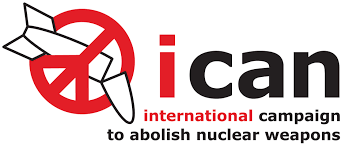Part 2 of 2 Parts (Please read Part 1 first)
PAX believes that this entanglement of the private sector and nuclear arsenals may offer leverage in reducing nuclear profiteering. The five biggest current contractors for nuclear weapons work are all U.S. based multinational corporations. Huntington Ingalls Industries ($29.9 billion), Lockheed Martin ($25.2 billion), Honeywell International ($16.5 billion), General Dynamics ($5.8 billion), and Jacobs Engineering ($5.3 billion).
The PAX report also identifies defense contractors with major nuclear contracts that are based outside of the U.S. Airbus operates out of the Netherlands. They currently produce nuclear armed missiles for France. A British based company called Serco has a twenty-five year contract with the U.K. to manage and operate the U.K. Atomic Weapons Establishment. A company in Hyderabad, India helped with the development of two of India’s nuclear armed missiles.
There are some strange and questionable contracts currently running in the nuclear weapons sector. For example, Boeing has a contract to develop what is being called “a Flight Termination Receiver.” This device is supposed to permit the inflight destruction of a nuclear missiles after a mistake launch or error in navigation. Some analysts fear that this could change U.S. nuclear policy in a dangerous way. Currently, if missiles are launched, there is no way to recall or destroy them.
There have been several false alarms in the past decades that could have resulted in a nuclear war but one of the probable reasons that the U.S. and the Soviets did not launch missiles is because it would have been irrevocable. If U.S. presidents had a way to stop a nuclear strike in progress, they might be more inclined to risk it for a possible false alarm. The problem here is that if the destroy option was not totally successful and even one U.S. missile hit the source of the false alarm, an all-out nuclear war might be the result.
PAX is a member of the International Campaign to Abolish Nuclear Weapons (ICAN). ICAN won the Nobel Peace Prize in 2017. ICAN was deeply involved in promoting the Treaty on the Prohibition of Nuclear Weapons (TPNW). This U.N. treaty was adopted in 2017 and is now open for U.N. member states to ratify.
ICAN has embarked on a subtle strategy to achieve their goal. Instead of starting out trying to convince the nine countries with nuclear weapons to abandon them, they are starting out by trying to convince the non-nuclear nations to ratify the treaty. This will mean that ratifying nations will not be able to possess nuclear weapons. It also means that non-nuclear nations will not permit nuclear weapons or their components from being manufactured within their borders. They will also be prohibited from allowing nuclear weapons to travel through or over their territory.
The idea is to create a tightening noose around the nations with nuclear weapons. ICAN hopes that the public support for ICAN in country by country will ultimately create a social taboo about nuclear weapons which will put pressure on corporations and governments to turn away from nuclear weapons. This has worked for chemical weapons, biological weapons, land mines and cluster bombs. Eventually complete global compliance with the bans on all these weapons may come about.
ICAN’s work has already resulted in two huge European pension funds pulling their investments out of the nuclear weapons industry. The movement is spreading to the U.S. with pension funds here considering dumping their stocks in defense contractors. Susi Snyder is the principle author of the PAX report. She said that “If Lockheed Martin can stop making cluster bombs because they’re losing investors across Europe. We know corporations can be moved. … It takes a long time with businesses, but you can do it faster than with governments.”
